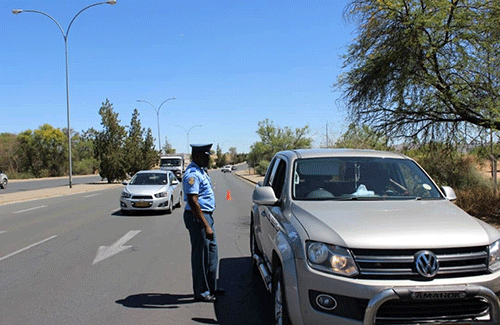Community policing 0fficer
Respecting the rules of the road is the duty of every driver, as outlined in the Road Traffic and Transport Act, Act 22 of 1999 (the Act). Unfortunately, some drivers disregard these rules, leading to the issuance of traffic fines.
However, it is important to note that receiving a traffic fine or a notice to appear in court does not automatically make someone guilty of the offense. Instead, it grants the accused the opportunity to present their case or admit guilt and pay the fine. Failure to address the matter can result in the issuance of a warrant for arrest, putting individuals in legal jeopardy.
Once a warrant is issued by a court, drivers may encounter a roadblock where officers verify their information and check for any outstanding warrants. If a warrant is found, the driver is arrested on the spot and taken to the police station for detention, with the warrant document being executed by an officer. At the police station, the accused can pay bail, which is equivalent to the outstanding fine or fines. After this, the accused then receives a new court date to resolve the matter.
To streamline this process, the Windhoek City Police department offers an alternative whereby individuals with warrants can voluntarily approach the office. Officials will then retrieve the outstanding warrant and accompany the accused to the police station. The accused is allowed pay the fine, referred to as bail, without being arrested. Similar to the previous scenario,
the accused is further given a new date to appear before a competent court. Depending on the circumstances, the court may exercise its discretion and impose additional fines for contempt of court. Once all obligations are fulfilled, the accused receives a receipt, which should be presented at the City Police offices for the purpose of removing their name from the system. Failing to do so will result in their record reflecting outstanding warrants, potentially causing delays at roadblocks.
Every individual who is issued with a fine must understand the necessary steps to avoid complications and unnecessary delays on the road.
By promoting understanding and compliance with the legal process, we can ensure a safer and more responsible driving environment for all road users, thereby helping us achieve our goal of making Windhoek the safest city in Africa in all aspects.
The Windhoek City Police will continue to encourage drivers to uphold the rules and take responsibility by either attending court hearings to contest their
fines or pay an admission of guilt before the deadline.
For warrant inquiries, please contact 061 290 2015 or visit the Office of Warrants at the City Police head office (Corner of
Essen street and Sishen street) between 07h30 and 16h30.
* The responsibility of road safety is everybody’s concern, and executing your duties as a driver is essential in contributing to safety on our roads. The Windhoek City Police can be contacted on 061 2902239 or the toll-free no: 061-302 302.


